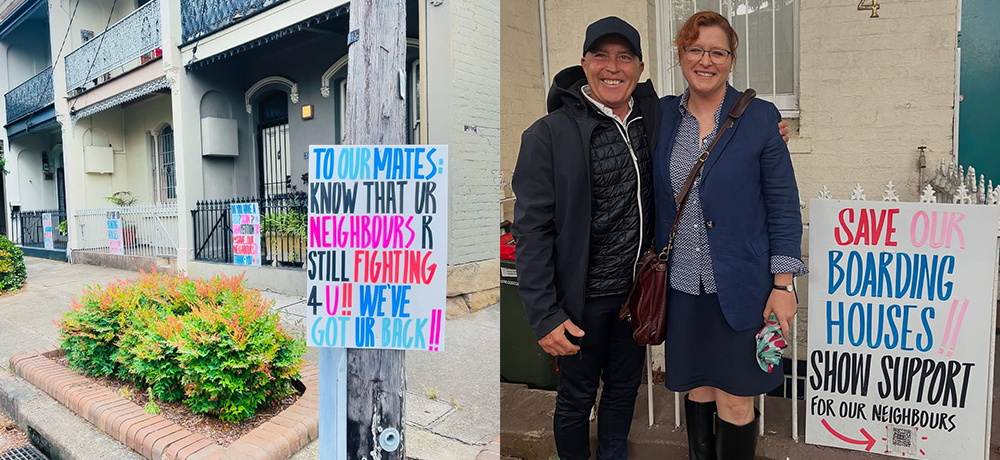
Sydney doesn’t belong to you anymore
If 2016 was a farce for Sydney’s nightlife, 2017 looks set to get even worse.
December finally saw the Baird Government release their vision of a good night out in Sydney, and it’s horrifying.
The promotional video ‘Sydney City Entertainment’ released on Transport for NSW’s facebook page earlier last month shows YouTuber Jayden Roddrigues “check[ing] out some of the city’s coolest spots”.
According to the Government, that means a cinema, the theatre, an amusement arcade and a karaoke bar. Best of all, everyone’s presumably home by 12. What fun!
The reviews, as expected, were dire. Viewers called it “cringe worthy,” and so “abysmally lame” that it makes the “dystopian PG-13” version of Sydney look about as much fun as a “retirement village”.
While it’s easy to dismiss the video as a symptom of another Government that’s become disconnected with the needs of its young people, it raises a darker possibility: that it just doesn’t care anymore.
For the last decade, both sides of politics have pursued policies that have irreversibly changed the nature of the city: its nightlife, housing-mix, infrastructure and economy. The lockouts, although the most obvious sign of this, are hardly the first to raise the question of who the future of the city belongs to.
Spoiler: it’s not going to be us.
While income inequality has grown all over Australia in the last decade, in Sydney it’s skyrocketed. While some inequality – based off education and employment – is always going to be a feature of urban life, today’s inequality has a different dimension: it’s also generational.
If you’re wealthy and living in Sydney, chances are it’s not because you worked hard, it’s because you bought a house early and sat on it. In the Inner West homeowners have pocketed an average $100,000 each year since 2006, based off the growth in value of their property. In Kings Cross, that figure’s closer to $400,000.
With that as their incentive, it’s no wonder earlier generations are choosing to stay longer in the city. According to a recent report from SCG Economics and Planning: “In the past a large number of retirees would have left Sydney and headed for coastal retreats but it seems many Boomers are staying put.”
While that makes it difficult for new generations to secure a foothold in the city, locking up houses they otherwise would have purchased, it also changes the objectives of cities’ entertainment districts.
A new cocktail bar is bought in to replace the old nightclub. A gasto-pub’s brought in to replace the student dive. Affordable townhouses are knocked down and replaced by boutique apartments for the rich and newly retired. Suddenly, it makes sense why the Government considers a night at the Capitol Theatre a fair trade for a decent night life.
Richard Cooke, of The Monthly, detailed this phenomena earlier this year in his essay ‘The Boomer Supremacy’. “The lockout laws are not the closure of a few pubs because of drunken violence,” wrote Cooke. “They are final confirmation of who the country is run by, and who it is run for.”
While it’s noteworthy that December saw Premier Mike Baird make some progress repealing that lockouts, allowing pubs and clubs to serve drinks for another half hour, any good will was swallowed up days later when police stormed and shut down another nightlife institution.
On the 18th of December, around 40 police barged through the doors of Candy’s Apartment, one of the few remaining music venues of Kings Cross, on allegations of a drug supply operation. When the dust had settled, all this resulted in the single arrest of a 21-year old man charged with possession of 60 MDMA tablets. Hardly enough to warrant the 72-hour close notice they served on the venue afterwards.
Warranted or not, the move seems to be welcomed by those who live in the suburb.
Earlier this year the Wentworth Courier published a poll of Kings Cross residents on the topic of lockouts. While one would expect those who chose to make a home in the centre of cities’ nightlife to be some of its staunchest defenders, more than 90% of the 8609 people surveyed indicated support for the lockouts.
Who can blame them, that extra $400,000 a year can buy a lot of cocktails, cold drip coffee, and yoga sessions from new businesses that are now thriving in the shells of evicted night clubs.
For everyone else in search of a good time, it seems, for now, we’ll have to make do this new dystopian PG-13 paradise.









